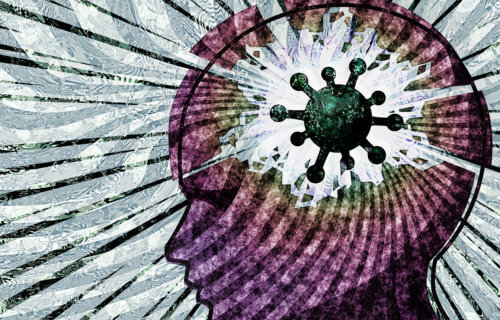HAMILTON, Ontario — Acute viral infections might not lead to neurological damage after all. While scientists have believed that viruses like Zika and COVID-19 could cause debilitating cognitive impairments, a new study by a team at McMaster University reveals the body’s immune response is the actual culprit.
“Our evidence suggests that it’s not the virus itself that causes the damage, but a unique population of T cells, which are part of the immune system, that are actually responsible for the damage,” says study lead author Elizabeth Balint, a doctoral student at McMaster University, in a media release.
McMaster researchers concentrated their efforts on understanding the Zika virus’s effects. Their findings revealed the presence of T cells specifically targeting Zika, aiming to eliminate cells infected by the virus. However, the study also uncovered a surprising element: a specific subset of T cells, identified as NKG2D+CD8+ T cells, which behaved abnormally by attacking cells not infected by Zika. These aggressive T cells were pinpointed as the cause of neurological damage not only from Zika but also from other severe infections like COVID-19 and septic shock.
The harmful impact of these T cells is linked to their production of large quantities of cytokines, proteins that normally help manage the body’s immune response by guiding immune cells to the site of infection or injury. However, an overproduction of these cytokines can lead to an excessive activation of the immune system, resulting in “collateral damage.”

“If our body’s immune cells overreact and over produce inflammatory cytokines, this condition will lead to non-specific activation of our immune cells which in turn leads to collateral damage,” explains Ali Ashkar, a professor with the Department of Medicine and the Canada Research Chair in Natural Immunity and NK Cell Function. “This can have severe consequences if it happens in the brain.”
This discovery opens new avenues for developing treatments for neurological conditions triggered by acute viral infections. Researchers have already identified a promising treatment using an antibody that can block and treat neurotoxicity in animal models. This antibody is currently undergoing clinical trials for other applications in humans, offering hope for future therapeutic interventions.
Balint is optimistic about the potential of this research to lead to effective treatments for humans. She plans to extend the study to other viruses, aiming to devise the most effective treatment strategies.
“There are a few different other viruses we’re interested in studying, which will aid us in creating the best treatment options,” says Balint.
The study was supported by the Canadian Institutes of Health Research, with Balint being a recipient of a Canada Graduate Scholarship Doctoral Award.
The study is published in the journal Nature Communications.
